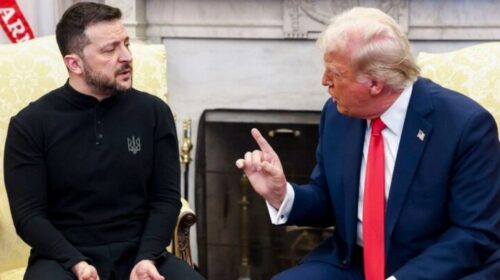BRICS Expands to Include New African Partners
South Africa has long stood as Africa’s sole representative within BRICS, the alliance comprising Brazil, Russia, India, China, and South Africa.
However, at the recent BRICS summit, the alliance announced the addition of 13 new nations as partners, including three African countries, marking a significant shift in its influence and reach.
BRICS has been rapidly expanding over the past two years, aiming to reshape the global economic landscape. Together, BRICS members represent 42% of the world’s population, 30% of the global landmass, and 24% of the global economy.
This expansion aligns with BRICS’ goal to reduce reliance on the U.S. dollar and strengthen their collective economic power, a strategy boosted by bringing new countries into the fold.
New African Partners in BRICS
Nigeria
As Africa’s most populous nation and a leading economy fueled by its vast oil and gas reserves, Nigeria has shown a keen interest in deepening collaboration in trade, technology, and security within the BRICS framework.
With over 200 million citizens, Nigeria presents an attractive consumer market that aligns well with BRICS’ ambitions to expand trade and investment across Africa.
By joining as a BRICS partner, Nigeria hopes to open new markets, attract foreign investment, and gain access to advanced technologies.
Algeria
Algeria, one of Africa’s largest hydrocarbon producers, recently received approval to join the BRICS New Development Bank (NDB). Algeria’s energy sector is critical to the continent’s economic landscape, positioning it as a valuable partner for BRICS as the bloc works to build a diverse and resource-rich network.
Uganda
With a predominantly agriculture-based economy and rich natural resources, Uganda stands to benefit significantly from its new role as a BRICS partner.
Deeper economic ties with BRICS countries could bring increased investment and trade opportunities in sectors like oil, minerals, coffee, and tea, which are integral to Uganda’s economy.
Additional BRICS Partners
Alongside the African nations, other countries recognized as BRICS partners include Belarus, Bolivia, Cuba, Indonesia, Kazakhstan, Malaysia, Thailand, Turkey, Uzbekistan, and Vietnam.
Understanding the Role of BRICS Partners
It’s essential to differentiate between full BRICS members and BRICS partners. Full members hold voting rights in decision-making, engage fully in BRICS summits, and commit entirely to representing the bloc.
In contrast, partners have limited participation rights and retain the flexibility to engage in other international alliances. While the new BRICS partners may become full members in the future, their current status allows for strategic, selective engagement without full commitment to the bloc.
![]()





